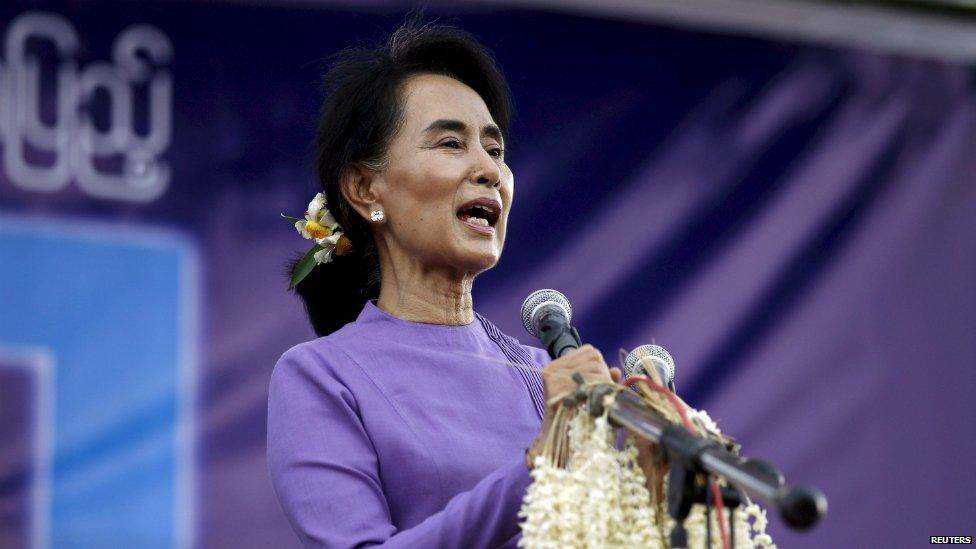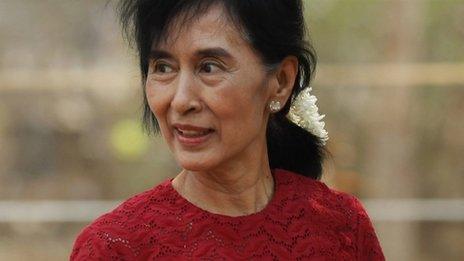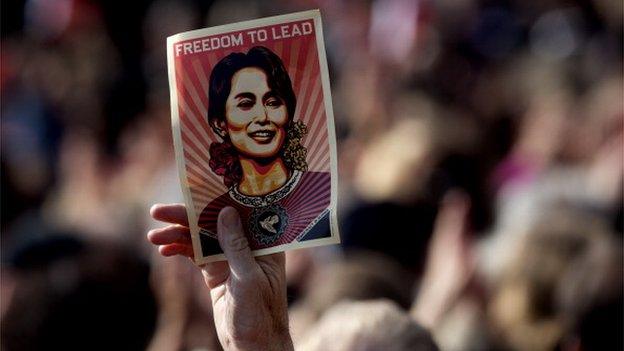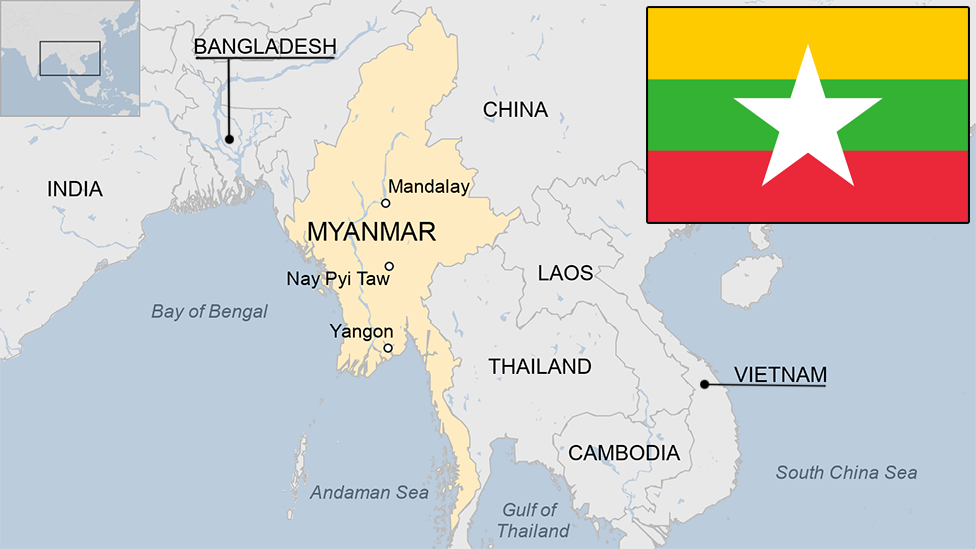Myanmar parliament votes to keep military veto
- Published

Opposition leader Aung San Suu Kyi has said "genuine change" relied on constitutional change
A vote in Myanmar's parliament has failed to remove the army's veto over constitutional change, dealing a blow to hopes for fuller democracy.
The bill received a majority of MPs' votes but not the 75% needed to pass.
Aung San Suu Kyi's National League for Democracy is expected to see big gains against the ruling party in an election likely to take place in the autumn.
The NLD swept the last free general election in 1990 but the then-ruling military junta ignored the results.
Ms Suu Kyi is barred from running for president because her two sons hold British not Burmese passports - a ruling she says is unfair.
Earlier in June, a parliamentary committee proposed changes to the constitution article that bars Ms Suu Kyi - but they did not change the part that affects her status.
Both chambers of parliament took part in Thursday's vote, meaning 498 votes were needed to reach 75% of the 664 lawmakers in total.
The amendment bill was "not enacted", parliamentary speaker Shwe Mann said, after the 388 votes in favour of change fell below the threshold needed for it to pass.
Of Myanmar's 664 lawmakers, 166 are military appointees while the rest are elected MPs. Reports said 583 members voted in parliament on Thursday, including all of the 166.

Analysis: Jonah Fisher, BBC News, Yangon
Over the last four years the public pronouncements of the Burmese army towards the reforms taking place have been deliberately ambiguous.
Now, thanks to the Constitutional Amendment Bill, it's been forced to draw a line in the sand.
It's now clear that while the military has allowed reforms elsewhere it will not contemplate even a small reduction in its political power.
That means the general election later this year, while an important moment, will be largely cosmetic. Even if the NLD wins the most seats, the military-protected constitution will ensure that key decisions and positions remain with army officers and appointees.
The vote on Thursday was a secret ballot, but crunching the numbers it looks like more than 90% of the elected MPs voted for a change.
That's quite a coalition, with the largest group among them being the USDP, Myanmar's ruling party. The USDP is usually described as being "military backed" and is stuffed full of former generals. And yet its MPs voted in large numbers to remove the military veto.
This may yet turn out to be a watershed day for Myanmar.

One of the proposed changes was for the bar for parliamentary approval for constitutional change to be lowered to 70%.
Myanmar's parliament continues to be dominated by the army and former generals despite reforms in 2011 that ended outright military rule.
Earlier this week, Ms Suu Kyi said "genuine change" in Myanmar was dependent on constitutional change.
Elections are expected in October or November.
- Published6 December 2021

- Published8 July 2015

- Published26 May 2023
